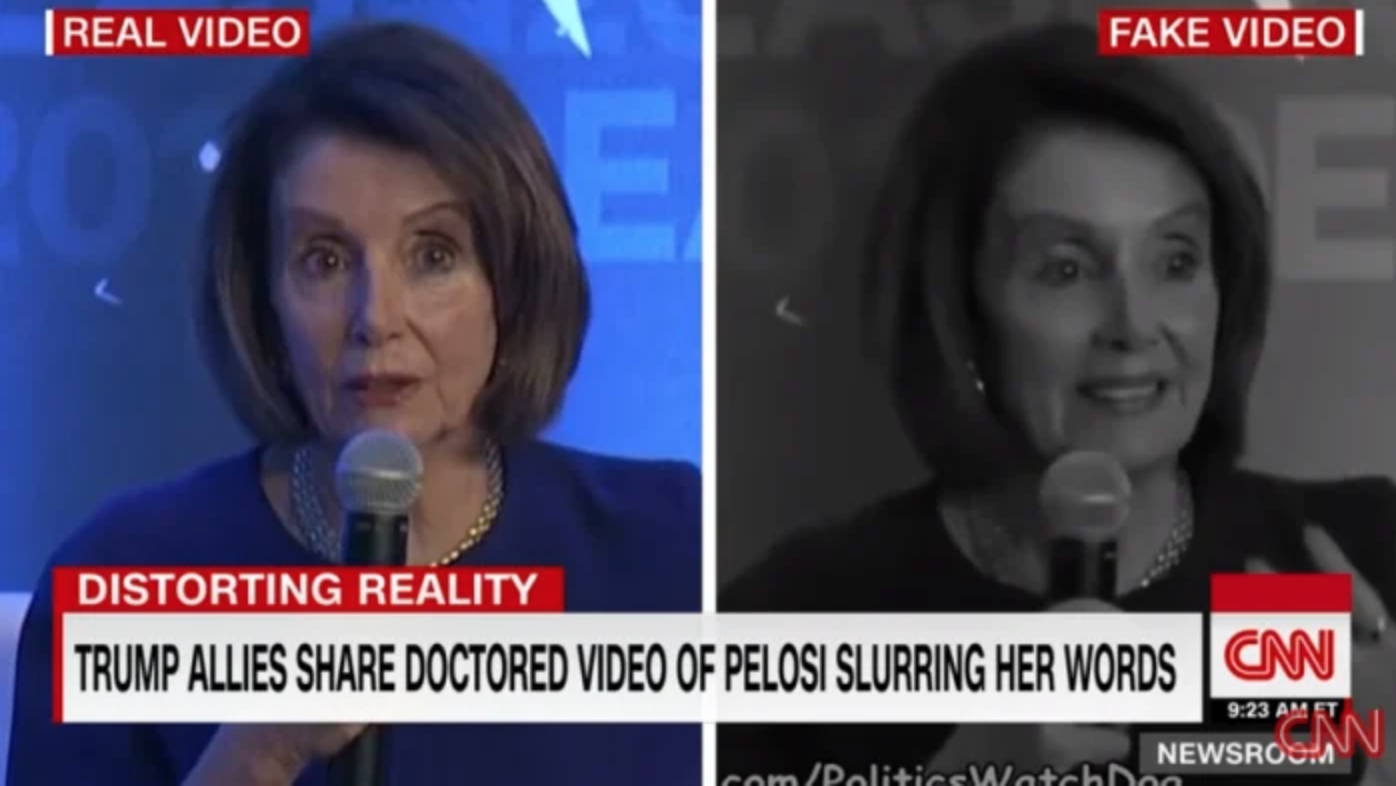Dems Pound Facebook Over Doctored Pelosi Video

The smarter way to stay on top of broadcasting and cable industry. Sign up below
You are now subscribed
Your newsletter sign-up was successful
Facebook is getting flak from Hill Democrats over the artificially slowed video of their leader, Nancy Pelosi (D-Calif.), which was posted on Facebook and made her look drunk or verbally challenged.
More than two dozen Democratic House members, including House Energy & Commerce Chairman Frank Pallone (D-N.J.) and Communications Subcommittee Chairman Mike Doyle (D-Pa.), wrote Facebook CEO Mark Zuckerberg Wednesday (June 26) to say they were not only concerned about fake accounts, which Facebook is addressing, but the spread of "political disinformation" on real accounts.
They said the spread of that disinformation--the Pelosi video has been seen by millions--poses a "grave threat" to Democracy.
Related: Social Media Should Remove Offensive Posts
They even suggested Facebook may be putting its bottom line before taking down doctored videos.
"We are concerned that there may be a potential conflict of interest between Facebook’s bottom line and immediately addressing political disinformation on your platform," they wrote, adding that it left them worried that Facebook is "grossly unprepared" for the 2020 election.
Related: Trump Seeks Evidence of Social Media Censorship
The smarter way to stay on top of broadcasting and cable industry. Sign up below
The Reps. want a bunch of questions answered by July 17.
They are:
- "When (date and time) was the original doctored video of Speaker Pelosi first reviewed by Facebook, what triggered the review, what standards were used to conduct the review, and what was the outcome of the review?
- "Did Facebook review the original doctored video or copies of the doctored video to determine if ad breaks should be allowed in the video, if the video should be boosted, if the video should be delivered through any other form of advertisement, or if the video should appear in connection with any advertisements on Facebook’s platform? For each review, please note the date and time when the review was conducted and the outcome (e.g., was the video approved for ad breaks, boosting, etc.).
- "Did the original doctored video or copies of the doctored video serve ads at any time (did ads appear in the beginning, during, or at the end of the video), was the video ever boosted, was the video ever delivered through any other form of advertisement, or did the video ever appear in connection with any advertisements on Facebook’s platform? Please specify.
- "Did Facebook generate any revenue directly or indirectly from the original video and copies of the video being posted on its platform?
- "On average, from the time content is posted on Facebook’s platform, how long does it take Facebook to flag suspicious content to third-party fact-checkers, third-party fact-checkers to review the content, and Facebook to take remedial actions after this review is completed? How long did each of these steps take in the case of the doctored Pelosi video?
- "How many product managers does Facebook employ whose full-time job it is to address disinformation, and how many third-party fact-checkers (number of people) does Facebook retain whose primary responsibility it is to fact check content posted on Facebook?
- "What determines if content gets reviewed by third-party fact-checkers, and does Facebook require third-party fact-checkers to abide by any standards or timeframes for reviewing content?
- "What steps is Facebook taking in advance of the 2020 election to stop the spread of political disinformation by real accounts on its platform?"
Joining in the letter were Reps. Jan Schakowsky (Ill.), Diana DeGette (Colo.), Bobby Rush (Ill.), Anna Eshoo (Calif.), Eliot Engel (New York), Rep. G. K. Butterfield (N.C.), Doris Matsui (Calif.), Kathy Castor (Fla.), John P. Sarbanes (Md.), Peter Welch (Vt.), Ben Ray Luján (N.M.), Paul Tonko (N.Y.), Yvette Clarke (N.Y.), David Loebsack (Iowa), Joseph P. Kennedy, III (Mass.), Tony Cárdenas (Calif.), Raul Ruiz (Calif.), Debbie Dingell (Mich.), Marc A. Veasey (Tex.), Ann McLane Kuster (N.H.), Robin Kelly (Ill.), Nanette Diaz Barragán (Calif.), Lisa Blunt Rochester (Del.), and Darren Soto (Fla.).
Contributing editor John Eggerton has been an editor and/or writer on media regulation, legislation and policy for over four decades, including covering the FCC, FTC, Congress, the major media trade associations, and the federal courts. In addition to Multichannel News and Broadcasting + Cable, his work has appeared in Radio World, TV Technology, TV Fax, This Week in Consumer Electronics, Variety and the Encyclopedia Britannica.

